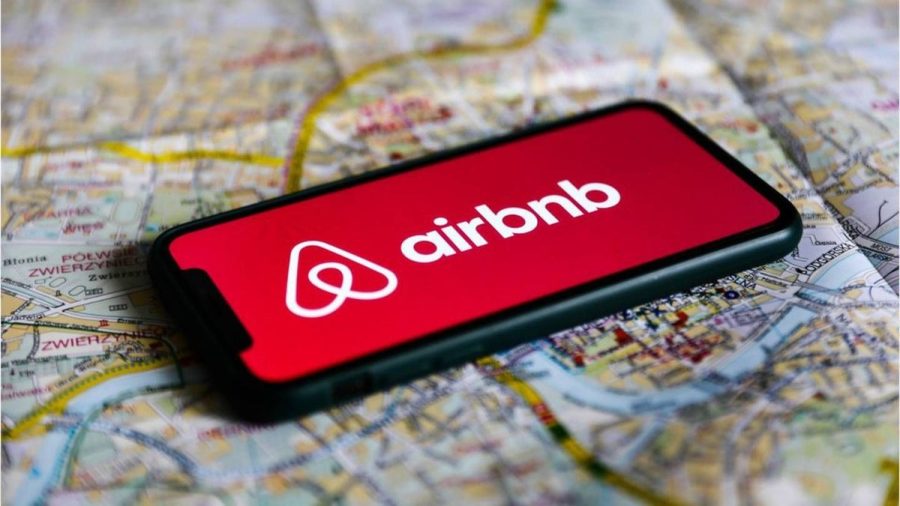Future of Tourism: Airbnbs Won’t Replace Hotels
During the pandemic, Airbnbs grew in popularity as a cheaper alternative to hotels because they offered users a more private experience with more personal space. Although this rise in popularity has added a new perspective to the traveling experience, I don’t think Airbnbs will ever fully replace the traditional hotel industry.
While Airbnbs are less expensive than most hotel experiences and offer other benefits like privacy and space, they do have some issues. First of all, checking out of an Airbnb may be more expensive than expected due to hidden cleaning fees and unreasonable checkout requirements such as “doing the laundry and vacuuming before departure.” This issue will hopefully be remedied with a new feature on Airbnb. In December, Airbnb will allow users to see the total price of their experience prior to checkout, including cleaning fees. Airbnb also plans to get rid of unreasonable requirements and make sure that the processes that add up to these fees are clearer. Although this solution will improve initial user experience with transparency during checkout, being more upfront about excessive cleaning fees and checkout requirements will probably draw some users away from the start as they see exorbitant prices.
Additionally, there has been a growth in the purchase of properties and transformations of long-term homes into short-term spaces for Airbnb. This boom in Airbnb properties is outpacing demand in many locations with occupancy rates dropping in “31 of the top 50 largest U.S. short-term rental markets from July through September.” While the rise of Airbnb properties in some spaces overcrowds demand, Airbnb states that there is still strong and growing demand and a rise in bookings and revenue overall.
This growth in Airbnb properties and choices has induced competitiveness among hosts and given more power to users. Hosts are now paying more attention to their reviews and users’ experiences on their properties. Airbnb properties with more laborious cleaning fees and checkout requirements will suffer in a market where there are more choices which are easier on users. Due to this, hosts are now looking for more ways to make their properties stand out and, in the future, decreased Airbnb booking prices may occur in more competitive spaces.
On the other hand, hotels are a constant which have grown to offer a wide variety of benefits to guests. Although hotels were hit hard during the pandemic, many have adapted and are steadily recovering. Traditionally, hotels are common and often integral parts of a person’s travel experiences. There are numerous choices depending on a person’s travel budget. While Airbnbs can be cheaper than a hotel experience, hotels often include multiple amenities which can help a traveler on their journey such as restaurants, spas, parks, gyms, pools and other services within the same building or close by. Hotel staff can also help guests with booking, transportation and any other travel plans in someone’s itinerary. Often, hotels are found close by a city’s landmarks or popular attractions which makes it easier for guests to travel around. Hotels also provide a feeling of safety and comfort to guests which is appealing. Cleaning services and fees for other things such as Wi-Fi or for resorts may add up in hotels, but unlike many Airbnbs, there aren’t checkout requirements or excessive cleaning fees.
Personally, I feel as if I have more experience with hotels which offer a feeling of adventure and comfort on travels. I’ve been in many different hotels, each which offer a new experience and a great way to meet other travelers. Hotels were also a great help in getting to difficult destinations or for suggestions on other interesting places to go. Also, at times when I went on a trip to an unfamiliar place and needed a place to stay, many hotels were flexible and available as safe choices.
While Airbnbs are growing in popularity, they won’t replace the traditional hospitality industry. The new feature on Airbnbs which lets users view cleaning fees and makes sure checkout requirements are reasonable will make Airbnbs more reliable with users but may turn them away from the start.
The boom in Airbnb properties can outpace the demand in some locations and create a more competitive market which makes it harder for hosts. Hotels, on the other hand, are a constant which have been adapting to pandemic conditions and can offer multiple convenient services under one roof which allow them to survive in the industry.
Saisha Islam, FCRH ’25, is a biology major from New York, N.Y.

Saisha Islam is a senior from the Bronx, N.Y., who is majoring in biological sciences and minoring in English. She first joined The Fordham Ram as a contributing...










































































































































































































